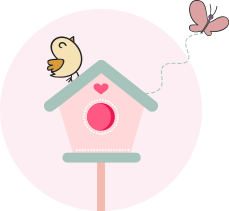
Independence of the Child
A Montessori method is an approach that the child leads. This implies that children learn from a young age to make decisions on their own and to work primarily independently to learn about the world that surrounds their daily lives at their own speed. Whether it's learning to put together a puzzle, assist with cooking, dress, or pour a drink of water, the kid develops the abilities to solve problems, ask for assistance when required, and freely communicate their wants and preferences. Teachers merely help and guide the pupils in the classroom; they essentially observe and do not intervene until it is deemed essential.

Individual Attention
Montessori teachers assess each kid and their specific needs. Every child is regarded as a distinct individual capable of working at their speed. Standardized testing is not used in Montessori classrooms.

Interaction with older and younger peers
Montessori classes usually include children of various ages. Regularly, teachers allow students to cooperate and connect with mixed age group of children. This will enable kids to become influential leaders and prepares them to communicate with others of different ages when they enter college or the profession. The multi-age learning setting is distinctive and essential to Montessori Methodology. Working with younger kids allows older children to acquire emotional and social communication and abilities of leadership. The method is beneficial to younger children.

Increased focus and love for learning
Montessori Education is a hands-on learning style in which each kid chooses their topic of interest and focus on it until they attain their objective. Due to which the children is are not under any duress , learning becomes enjoyable. Consequently, a kid focuses without feeling pressed, and even if they haven't mastered a skill immediately, they can analyze their own progress and preserve their curiosity and enthusiasm to return to it another time.

Acquiring Social Skills
The Montessori concept calls for multi-age group of children in one place, typically lasting three years ( 2 - 6years of age) This allows for peer-to-peer learning. Young children learn by watching and observing. By assisting the younger children, the older children learn abilities of leadership and team play.

Different paces for different kids.
Montessori Education allows each child to learn at their own pace. As a result, a diverse spectrum of students flourish in the same class. Self-pacing frequently assists children in building their confidence.
A Montessori school is pricey for a variety of reasons. Montessori schools are private, and the materials used in the classrooms must meet particular size, measurements and quality requirements, which come at a higher cost. Instructors' training is particularly intensive and expensive, requiring the ability to cope with the Teaching Methodology. Without the extra training and a shift in thinking and practices,a Montessori Teacher isn't made.





Concepts and Small Community
To begin, some pupils may struggle with memorizing math information. From their time in a primary school, children learn fundamental ideas. For example, kids study operations with the decimal system, such as why 1231 + 5295 = 6526. Following that, pupils in a Montessori setting are part of a small community and may spend a very long time with the same peers. As a result, youngsters might form outstanding bonds, or it can be a continual learning setting for honing their social skills.

Lack of well-defined curriculum
Some parents are concerned about the absence of a well-defined education system and their children's excessive freedom of choice. They are worried that the youngsters would not learn much with this technique because not every child can study without instructions. Some kids cannot learn without proper education, even though there is no formal curriculum for pupils to follow. If you select Montessori, you must accept that your kid may become more interested in one topic than another.

The transition process
Finally, kids who leave before the completion of the three-year context may struggle to adjust to other institutions. Because there is a learning continuum, shifting at a time when the kid has not learned the abilities and skills required for achieving success in the other classrooms might be problematic.

Acquiring Social Skills
The Montessori concept calls for multi-age group of children in one place, typically lasting three years ( 2 - 6years of age) This allows for peer-to-peer learning. Young children learn by watching and observing. By assisting the younger children, the older children learn abilities of leadership and team play.

Different paces for different kids.
Montessori Education allows each child to learn at their own pace. As a result, a diverse spectrum of students flourish in the same class. Self-pacing frequently assists children in building their confidence.